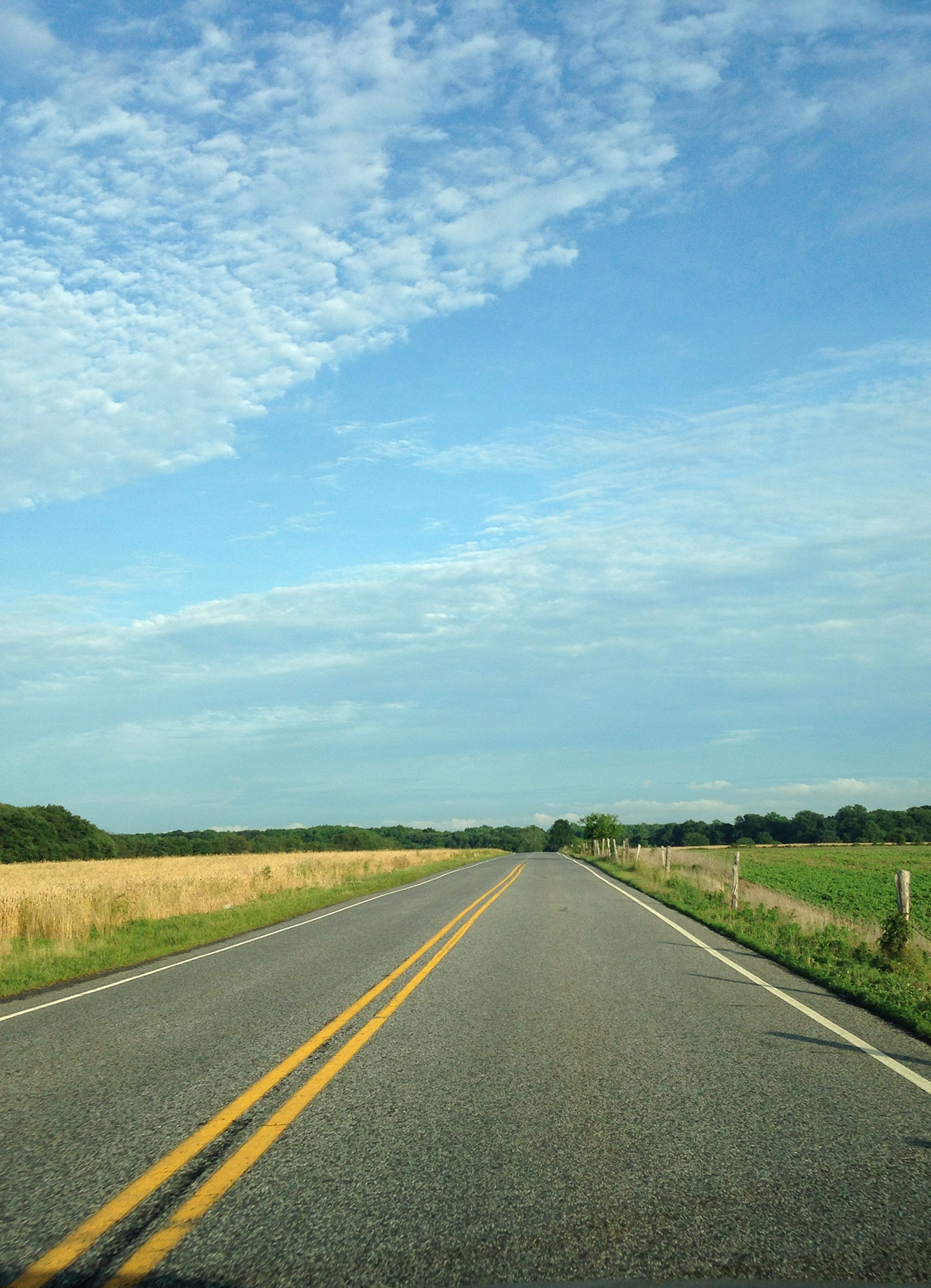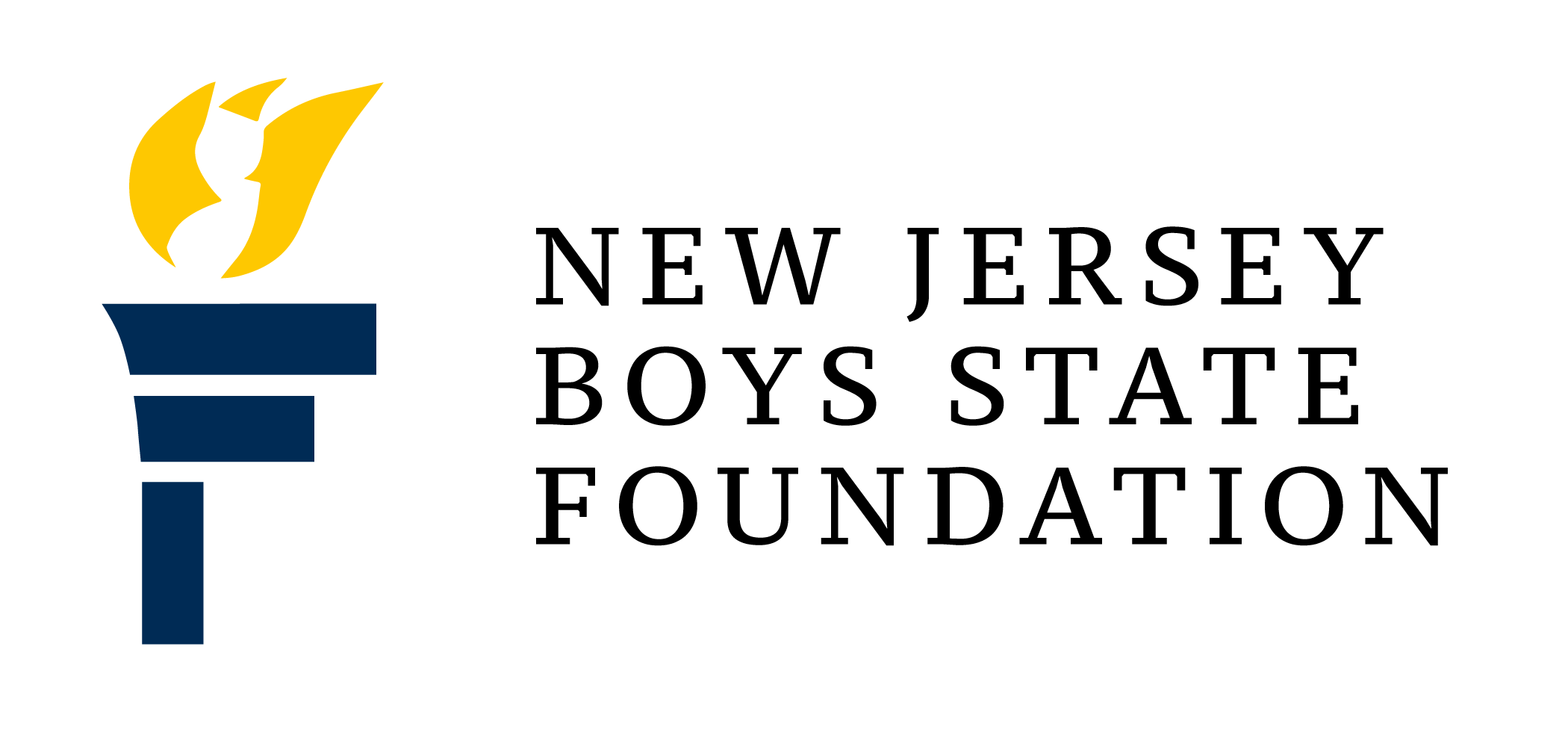News Archive

Spend enough time on a state’s roads and you begin to understand the state itself. Michigan’s roads are long, straight, and deliberate, with an abundance of sky and dearth of scenery. A journey from point to point is a planned undertaking rewarding hard work and full acceptance of the mission. Pennsylvania’s roads wind over mountains, through forests, and alongside rivers except in the cities, where they desperately restrict expansion like an overtightened belt. Two distinct areas are fused into one unusual state.
And New Jersey’s? New Jersey’s roads are overcrowded and frenetic. They teem with life, full of cars rushing by in excess of any posted speed limit. The roads themselves are blunt and nondescript, containers for the millions of people that use them daily.
If you can safely take your eyes off the cars around you, you will notice the horizon—or, rather, the lack of one. Think of a road in the Garden State, then try to think of the view from a place on that road. Most likely, a tree or building blocks the horizon. No matter where you go, the view is the same. If you want to watch a pure sunset, there are no good places in New Jersey to do it. There is always a boundary.
Many of these boundaries hug the road, adding to the claustrophobic feel of driving. Trees, multi-story building, houses, malls, and more stack up against each other. We all know that New Jersey is the most densely populated state in the country. But that population density is often at levels that make us wonder whether this is actually a state or a sociological experiment to see how many people can be shoehorned into a small area without a revolution or area-wide food shortage.
Then there are the town borders. In most counties, the boundaries between towns are tight. My town’s borders are the double-yellow lines on four roads. The other halves of those roads belong to three other towns.
Although the towns’ borders were drawn, New Jersey’s borders were largely given to it by its geography. On the west, the Delaware River divides it from Pennsylvania. On the south, the Delaware Bay ends the state. To the east is the Atlantic Ocean, the only horizon in the state but also an impermeable barrier. Only the north border was drawn. The others were established long ago and bridged later.
From the top of these bridges, you can see over the buildings and trees as the Garden State stretches before you. That’s if you’re coming into the state.
Many people aren’t, though. The 2010 Census shows New Jersey’s population as increasing 4.5% since 2000 but that’s somewhat misleading. The national average was more than double that, and the 2012 American Community Survey shows New Jersey bequeathing almost 90,000 more people to other states than it took in.
In short, people are leaving. It’s not the dramatic exodus that Michigan is experiencing but there’s a clear pattern of departures.
The numbers don’t hold any clues. They dispassionately state that New Jersey’s population isn’t headed in the right direction but offer no explanations, leaving us to speculate. Maybe it’s the taxes. Maybe it’s the lack of jobs in certain counties. Maybe it’s the allure of large cities nearby and warm weather far away.
Or maybe it’s the boundaries, the feeling of being trapped in a place and having your dreams beaten down as you struggle to break through the limits.
Apologies for getting all Darkness on the Edge of Town on you, but there’s a reason our folk hero was able to tap into those feelings so easily. It’s because they exist here, perhaps in a unique way.
In the Northeastern United States, the region’s history sits on you and dares you to free yourself from underneath it. Want to be a [fill in the blank]? Sorry, we already have a world-famous one of those. Seriously, just look at the following list of illustrious people from New Jersey:
-Inventors: Thomas Edison, John Mason, Oberlin Smith, Donald Fletcher Holmes, Lloyd Conover, Samuel Colt, John Holland, Guglielmo Marconi -Music makers: Les Paul, Sarah Vaughan, Bruce Springsteen, Whitney Houston, Frank Sinatra, Paul Robeson, Ice-T, Count Basie, Lauryn Hill, Jon Bon Jovi, George Clinton, Wayne Shorter -Civil Servants: Grover Cleveland, Chris Christie, Antonin Scalia, William Brennan, Woodrow Wilson -Filmmakers and Actors: Steven Spielberg, Meryl Streep, Jack Nicholson, Michael Douglas, Jerry Lewis, Kevin Spacey, Bud Abbot and Lou Costello, Kevin Smith -Writers and Poets: Walt Whitman, Joyce Kilmer, Stephen Crane, Edward Stratemeyer, Philip Roth, Judy Blume, James Fenimore Cooper, Dorothy Parker, Allen Ginsburg -Businessmen: Thomas Bramwell Welch, Edward Stratemeyer, John Moody, Robert Wood Johnson -Sports: Mike Trout, Vince Lombardi, Goose Goslin, Rick Barry, Althea Gibson, Jeff Carter, Shaquille O’Neal, Bobby Ryan, Amos Alonzo Stagg, Tim Howard, Steve Mizerak -Military: Norman Schwarzkopf, William “Bull” Halsey, Zebulon Pike
And what about astronaut Walter Schirra, chef Alice Waters, photographer Dorothea Lange, political cartoonist Thomas Nast, and the many others we don’t have space for?
This list would put some countries to shame. Our state has a rich and diverse history.
Diversity is perhaps its defining trait. New Jersey has something for everyone, just often on a smaller scale. The same flat fields that exist in Michigan are here in Salem and Cumberland Counties. The rolling hills and mines of Pennsylvania are present in Sussex County. We have an ocean shore, suburban sprawl, farms and forests, cities and colleges.
So why do people leave if they have all these choices? What aren’t they getting from the state?
Love, perhaps.
Although America uses the term “homeland” to refer to a place of origin, many nations refer to their country as either a “motherland” or “fatherland.” The distinction is largely irrelevant; the terms are often used interchangeably. But there are some subtle distinctions in the psychology of the terms.
Perhaps the best explanation of these differences comes from Chinua Achebe’s novel Things Fall Apart: “A man belongs to his fatherland when things are good and life is sweet. But when there is sorrow and bitterness, he finds refuge in his motherland.” The mother nurtures and protects. The father instills values and fortifies. And thus, the motherland is a nurturing place, the place to which we instinctively run to regroup, the place where we feel defined. The fatherland is the place that has shaped us, where we are from. Place versus location.
For increasing numbers of people, New Jersey is a fatherland, a land they run from, but not a motherland, a land they run to. It is the state that bore us, raised us, taught us to navigate life at full speed, opened our eyes to the possibilities before us, and frustrated us at times with its discipline.
I am one of these people. I still live in New Jersey but I don’t love it as some do. I feel more at home interacting with people from other states, particularly those from the Midwest, than I do with my fellow statesmen. New Jersey’s furious pace wears me out. If I had my choice, I would be elsewhere.
But I am still here. I am still located in the Garden State, my fatherland, where I grew up. This is unquestionably the state that had the biggest part in shaping me and causing me to become who I am today. My story, like the 1,000 delegates of ALJBS this year, cannot be told without featuring New Jersey.
There are five words in the name of our program. Four of them are shared by many of our sister programs around the nation. The one that’s not is the middle one: Jersey. Our program reflects us, which means that it reflects where we come from. It is the one thing that cannot be lifted from here and used elsewhere. We are, proudly, Jersey Boys State.
Throughout the week of ALJBS, the delegates find their place within their cities, parties, and ALJBS state. There’s something for everyone to do, whether politics, sports, music, seminars, retreat, the city and county manuals, general helpfulness, or none of the above. It takes time—and not everyone finds a place to contribute and belong—but watching the delegates start to find their footing in life by finding their place within this social experiment is a thrilling, rewarding experience. As staff, we get the chance to see them start to push their boundaries and grow into who they are. Some of them will grow up to be as famous as the names we listed earlier. Our Governor, United States Senators, and a Supreme Court Justice, to name a few, are all former ALJBS alumni. They have broken through the boundaries. Their example challenges us to do the same.
Not everyone will. Not everyone does, even on the small scale of American Legion Jersey Boys State. But those who do always carry a part of their fatherland with them wherever they go.
My favorite place in New Jersey is on Bridgeton Pike in Salem County. Just after Whig Lane and Alderman Roads intersect the Pike, it bends slightly to the left, revealing an expanse of flat, beautiful farmland. Houses, barns, and silos are visible in the near distance—it wouldn’t be New Jersey without people nearby—but really, this is the place to watch other things. I’ve seen approaching storms unleash their lightning, the huge, golden harvest moon glow on an autumn night, a scarlet sunset occupy half the sky, and a pack of deer munch on some food at the treeline.
Yes, even this spot has trees at the horizon. But here, for some reason, it feels perfect. There are other places in New Jersey that actually have a horizon but they don’t feel right to me. They aren’t the state I’ve known. I need to see that physical boundary to know I’m in my fatherland.
On Bridgeton Pike, there simultaneously exist the nurture of beautiful farmland, the stern borders of trees, and the roads to take willing passengers to and through those borders. These two lanes will take me anywhere.


